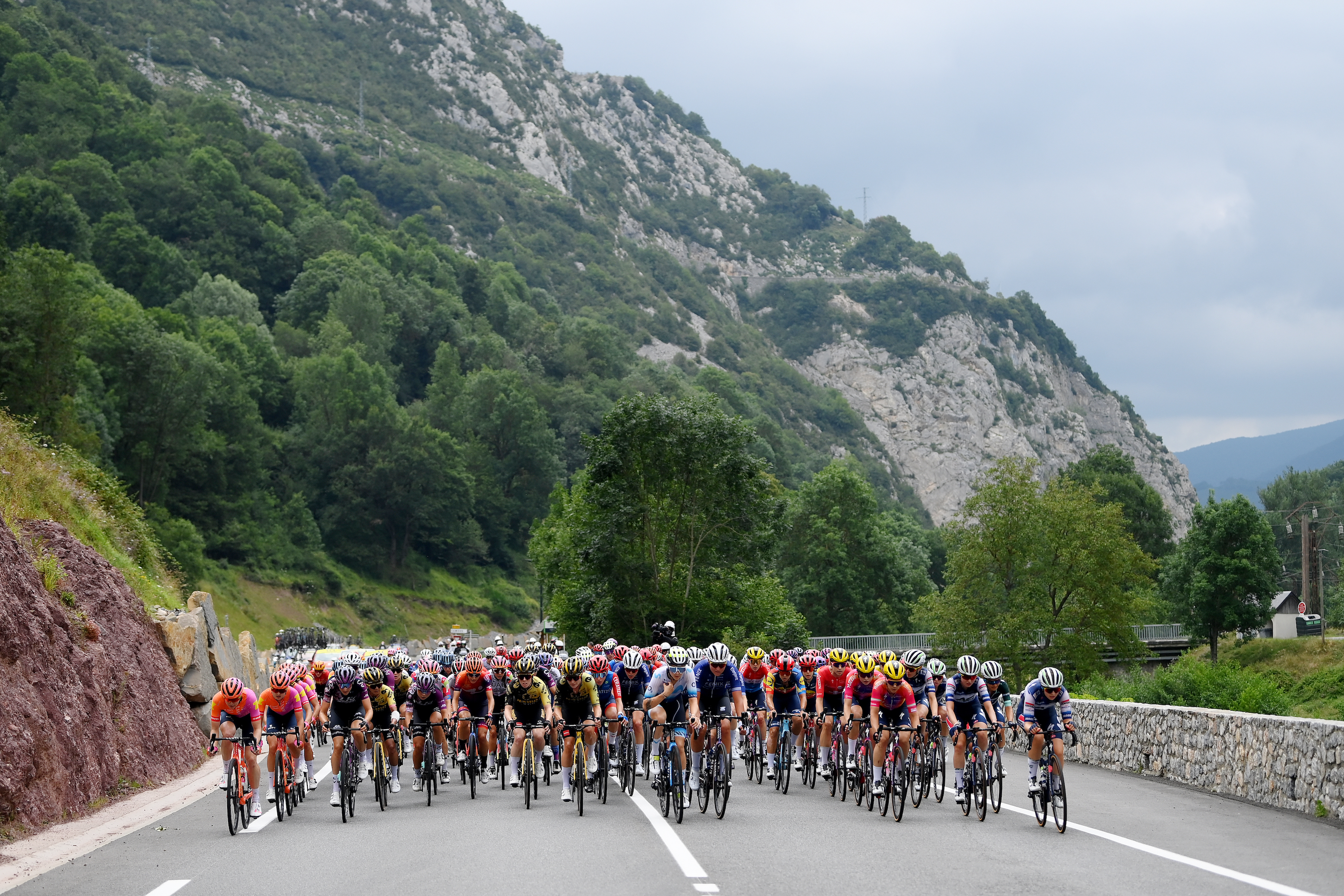Second professional tier for women's cycling a year earlier a 'good step forward'
Three-tier system of WorldTeams, ProTeams and Continental Teams to mirror men's equivalents from 2025


The announcement of an introduction of a second professional division of women's cycling teams has been welcomed as "great news" by The Cyclists' Alliance (TCA), an association that supports the women's peloton.
The introduction of women's ProTeams will come in 2025, cycling's governing body, the Union Cycliste Internationale (UCI) said on Wednesday.
Like the men's system, there will be WorldTeams, ProTeams, and Continental teams. The first two will be registered directly with the UCI, rather than national federations - as is the case with Conti teams - so there will be more regulation, and the potential for minimum salaries at this level.
The decision was announced in a statement on Wednesday following the meeting of the UCI's Management Committee in Glasgow, ahead of the World Championships.
Previously, ProTeams were set to be introduced to women's cycling from 2026. The move has been brought forward due to the "current boom" according to the UCI.
Iris Slappendel, the Executive Director of the TCA, said that it was a "good step forward", but warned that there should be more attention on Continental teams too. The former rider also warned that there needs to be a solid racing calendar for the new ProTeams when they come into existence.
"I think it's great news," she told Cycling Weekly on Thursday. "It's something we have been advocating for since the beginning of the TCA, to have the teams registered with the UCI. The more teams, the more opportunities to do so, the better.
Get The Leadout Newsletter
The latest race content, interviews, features, reviews and expert buying guides, direct to your inbox!
"There's a few Continental teams that applied already for WorldTour status last year, that are kind of an in-between team. They're better organised than most continental teams, but they didn't get the licence for some reason. I think there are already a few teams that are in between these two tiers.
"The disparity between both tiers is only growing at the moment. It's a very big step from Continental to WorldTour. With all the focus on the WorldTour recently, with growing and professionalising that tier, actually nothing has happened on Continental level.
"So I think the introduction of the Pro Conti is a good step forward. There should also be more attention to the Continental level on itself and try to create a bit more of a bit more regulation around that tier as well."
"With the racing calendar, all the focus has been on the WorldTour," Slappendel continued. "Everyone is trying to be a WorldTour race at the moment. Maybe, as the sport develops, it will make more sense for race organisers to organise a ProTour race, knowing that certain teams will come to the race."
"The UCI Management Committee approved the creation of a second division of women's professional teams. This means that UCI ProTeams for women will appear from 2025," the UCI's statement reads.
"The introduction of this division, positioned between the existing UCI Women's WorldTeams (1st division) and UCI Women's Continental Teams (to become 3rd division), was initially scheduled for the 2026 season. However, in view of the current boom in women's cycling, and following consultation with stakeholders, the decision was taken to bring forward the launch by one year.
"This new initiative will also enable a greater number of female riders to benefit from a professional framework. With the introduction of the women's UCI ProTeams, women's teams are now structured according to the same model as men's teams.
"As professional teams, the women’s UCI ProTeams will follow the same registration procedure as the other professional teams (UCI Women's WorldTeams, UCI WorldTeams and men’s UCI ProTeams) by registering directly with the UCI. The UCI will be assisted in this task by the appointed external auditor, PwC."
"The sector is continuing the impressive progress it has made in recent years," UCI president David Lappartient said. "These advances will boost the sector and provide further evidence of its growth."
At the recent Tour de France Femmes, six of the 22 teams present were Continental teams. AG Insurance-Soudal Quick-Step finished sixth on general classification through Ashleigh Moolman, and Ceratizit-WNT won the white jersey for best young rider through Cédrine Kerbaol.
The move to more professionalism is an attempt to avoid situations like with the Zaaf Cycling Team earlier this year, which was stripped of its Continental status after riders left the team following allegations of non-payment of salaries.
On this, Slappendel said that it was "super helpful" that the new ProTour teams would be registered with the UCI: "This is because you're not depending on national federations anymore, and how strict they are in checking if everything is in place for a Continental team. "

Thank you for reading 20 articles this month* Join now for unlimited access
Enjoy your first month for just £1 / $1 / €1
*Read 5 free articles per month without a subscription

Join now for unlimited access
Try first month for just £1 / $1 / €1

Adam is Cycling Weekly’s news editor – his greatest love is road racing but as long as he is cycling, he's happy. Before joining CW in 2021 he spent two years writing for Procycling. He's usually out and about on the roads of Bristol and its surrounds.
Before cycling took over his professional life, he covered ecclesiastical matters at the world’s largest Anglican newspaper and politics at Business Insider. Don't ask how that is related to riding bikes.
-
 Hayfever and your riding: how to combat it as the pollen strikes
Hayfever and your riding: how to combat it as the pollen strikesExplanations, medications and holistic measures to make your spring and summer riding more enjoyable
By James Shrubsall
-
 I went to Paris-Roubaix Femmes and was shocked at how it is still treated as secondary to the men’s race
I went to Paris-Roubaix Femmes and was shocked at how it is still treated as secondary to the men’s raceThe women’s version of the Hell of the North is five years old, but needs to be put more on equal footing with the men
By Adam Becket